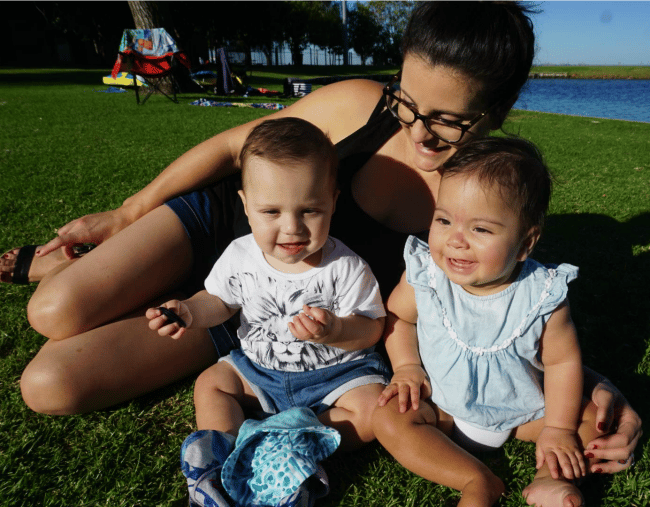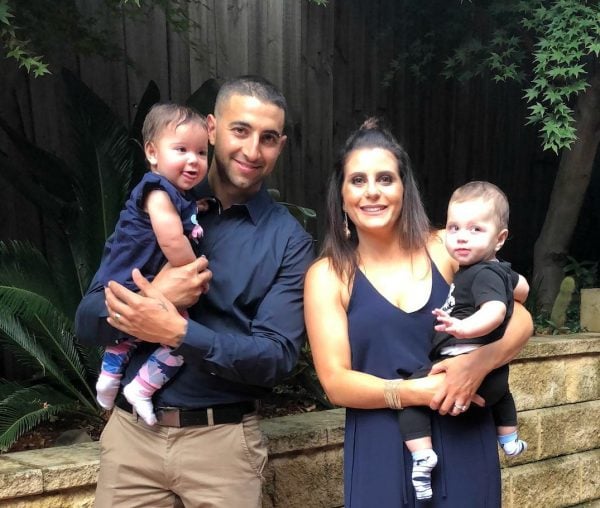
Adriana Condello was distraught before she even walked into the appointment. Eight-weeks pregnant, complications had lead doctors to order an emergency scan. Having suffered four unexplained miscarriages previously, the Melbourne woman was bracing herself for a fifth heartbreak.
But doctors discovered that not only was all well with her unborn son, there was another baby growing alongside him. A little girl, roughly a week younger than her brother. One child had been conceived via IVF, the other naturally.
“It was such a shock,” the 33-year-old told Mamamia. “I went in there thinking I had lost that baby; I had put that in my head, that it was over. So to be told that that baby was OK and then to be told that there was a second, my joy was just through the roof. It was one of the best days of my life.”
Research by Monash IVF in 2014 found one in five non-identical twins born after a single egg transfer are the product of a concurrent natural conception.
“It couldn’t have happened a better way,” said Adriana. “With all our struggles it felt meant to be.”
How to help someone who has experienced pregnancy loss. (Post continues below.)
Pregnancy loss wasn’t the only struggle Adriana and her husband Mark had endured on their way to becoming parents. Adriana is among the 23,000 Australians living with Multiple Sclerosis.
While MS itself does not reduce fertility, the effect of some MS medications on pregnancy are unknown, meaning Adriana was advised to halt hers while trying, carrying and for six months after the twins’ birth.






























































































